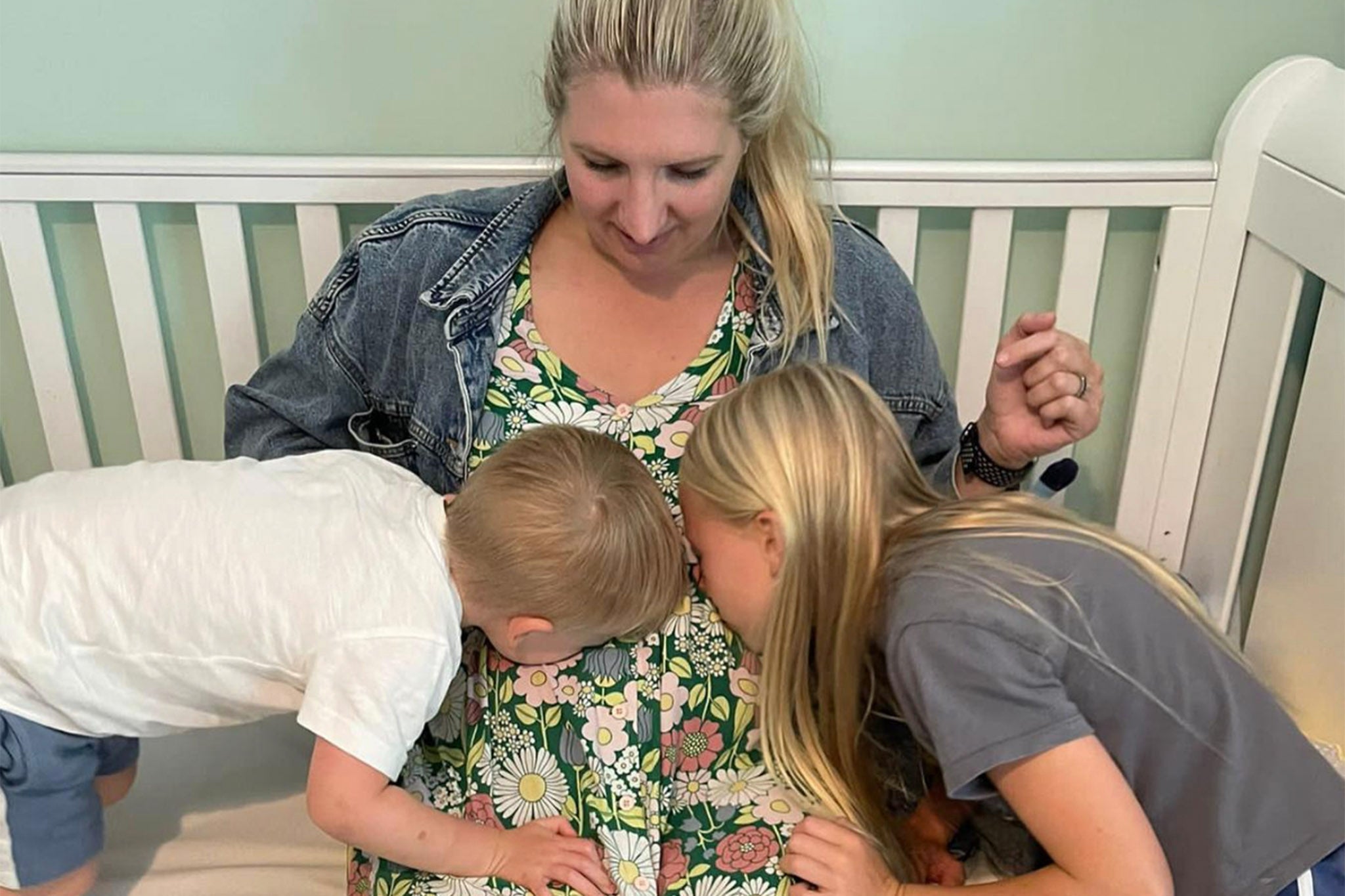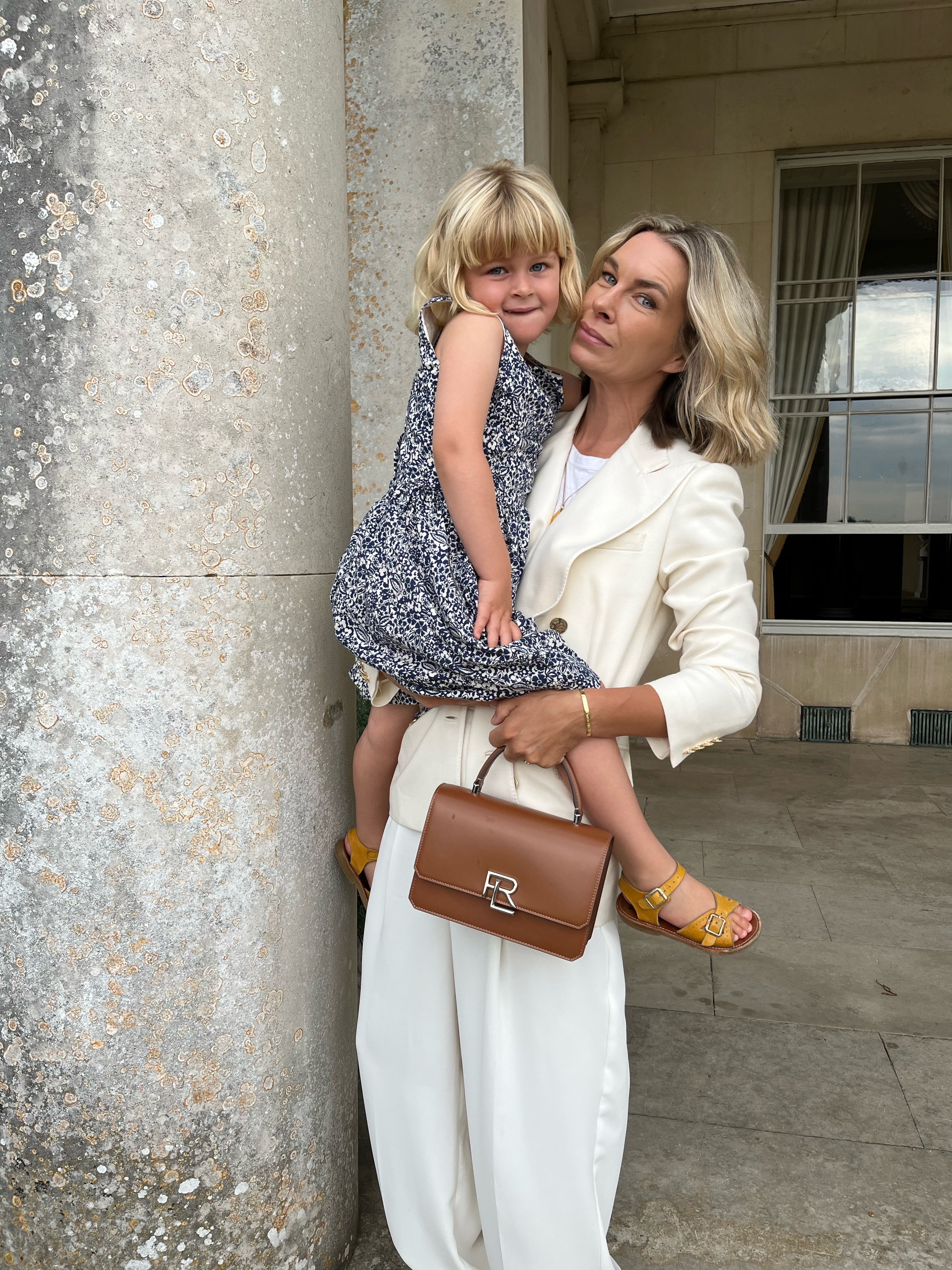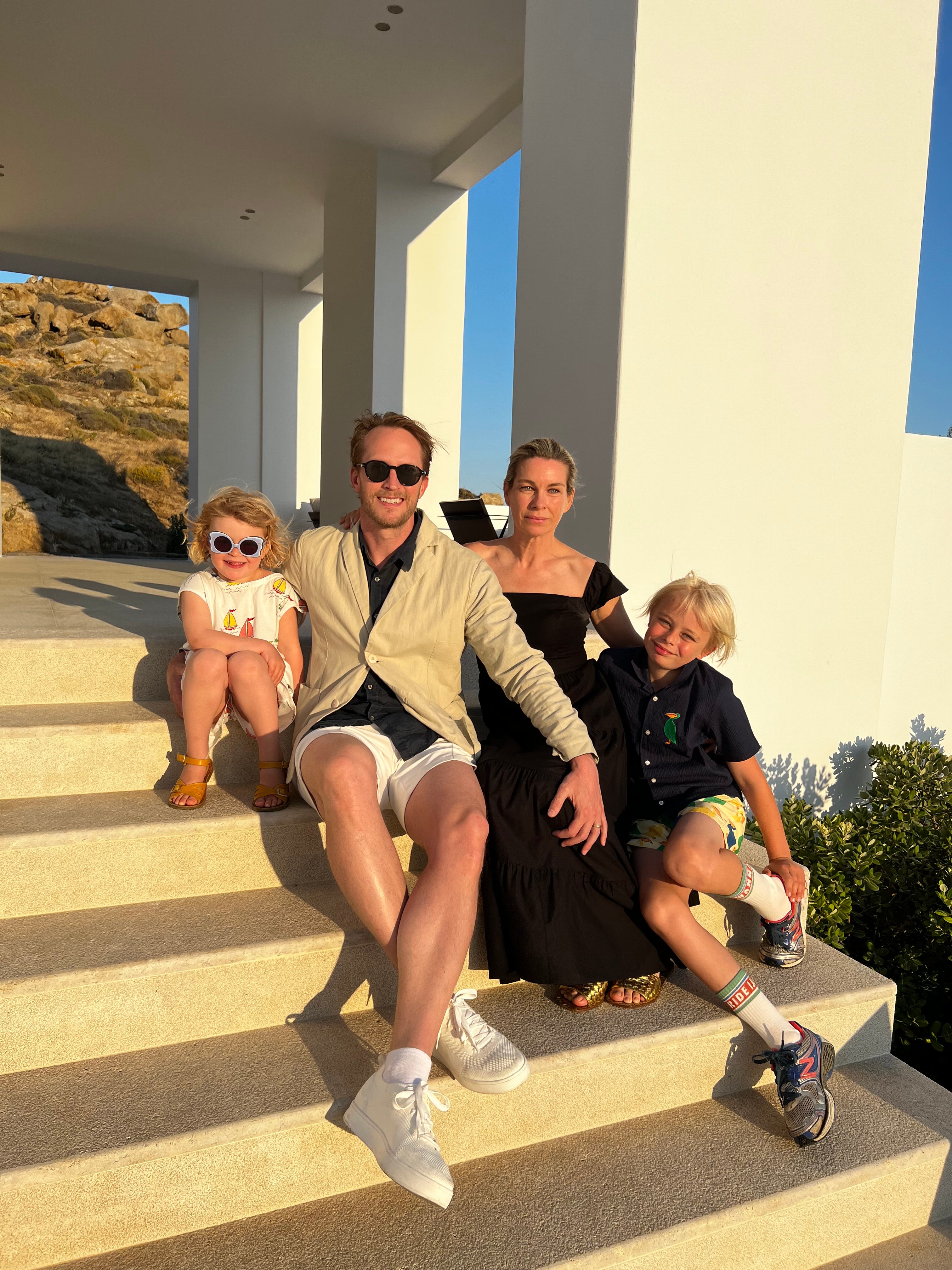The Independent's journalism is supported by our readers. When you purchase through links on our site, we may earn commission.
Like Rebecca Adlington, I also know the heartbreak of losing a baby at 20 weeks
In an intimate Instagram post, the former Olympian revealed she had a miscarriage at five months. For Pippa Vosper, it brought back emotional memories of going through the same devastating loss

When I heard the news that Rebecca Adlington had a late miscarriage at 20 weeks, it brought back the pain of losing my own baby late in pregnancy. I too was five months pregnant, and six years on, the loss I feel is still just as devastating as it was then.
Adlington had announced her pregnancy on 1 October on her Instagram, but on Sunday, the 34-year-old, who has a son and a daughter, put up the following heartbreaking post: “I don’t really have the words right now, but unfortunately we went for our 20-week scan this week and they found no heartbeat. I gave birth to our angel, Harper, on Friday at 7pm. We held her and had time with her. We will forever love her and remember her always.”
I also had to say goodbye to my baby on the day that I gave birth to him. At 20 weeks pregnant, I went into premature labour due to a weakened cervix caused by a complicated first pregnancy. I delivered my son on towels in my bathroom, as instructed by the 999 responder on the end of the telephone line. My son, Axel, was breathing, but due to his not-yet-fully-developed lungs, he was unable to survive, and died as I held him in my arms, while I told him over and over that I loved him.

Nothing could have prepared me for what followed in the hours after my son died. The overwhelming feelings of grief and physical pain, the hours I spent later holding my son in a hospital bed, his beautiful body cold and perfect, the surge of love as I kissed his face and felt his soft skin against mine. The uncontrollable sobbing, asking doctors and midwives whether I had caused his death by lifting something heavy, or my stressful workload, or maybe by not eating the right things.
Axel, as we named him, was our second baby – a much-wanted sibling for my elder son, Astie, who was almost six years old. An hour after his birth, I was taken by ambulance to A&E with my baby cradled in my arms; the surreal situation of what was happening dawning as I felt my little boy’s body temperature get lower with the passing distance between my home and the hospital. Astie and my husband followed us in our car, and I can still picture my son’s confused face as he came to see me, asking why I was there. He would wake from nightmares, with visions of us all dying, for some time after.
Pregnancy loss at any stage is misunderstood and silenced because few know what to say to a parent who has lost their baby. Like Rebecca, I announced my pregnancy loss on Instagram and knowing the right words to say in response can be difficult for many. Most people were kind and offered their condolences, but after the initial texts, emails, or direct messages on social media, many people just went quiet. And that silence could be deafening.
The only thing worse than the quiet, were the comments that were unintentionally hurtful. Of course, people try to find the right words, but saying things like “at least you know you can get pregnant”, “at least your pregnancy wasn’t full-term”, and “it happened for a reason” were painful to hear. Rather than giving false hope or being overly positive about how everything is going to be okay, a simple “I’m so sorry” can be the right thing to say to those who are grieving.
A loss at any stage in pregnancy can be traumatic, but speaking from my personal experience, it is clear that many people didn’t fully understand that at 20 weeks you are carrying a fully formed baby. My son was 20cm, with a perfect small body, his ears little cauliflowers, and his eyes remained closed; only his organs were not fully developed. It quickly became obvious that many didn’t realise that I had delivered a baby. I can only assume they imagined my son had appeared in the form of a large blood clot.
While many women don’t announce they are pregnant before 12 weeks, at 20 weeks everything is much more public. My bump had been showing, and even after I had delivered Axel, I still had a visible swelling, which led people to ask awkward questions about when my baby was due, not aware that my baby was no longer alive. I would freeze when acquaintances would ask about pregnancy sickness and whether a nursery had been decorated, panicking as I tried to find the words. Eventually, I found that the best option was to be honest and say my baby had died. It wasn’t easy, but while I didn’t want to make people feel uncomfortable, it became important to me that the millions of us who lose a baby in pregnancy each year are also allowed to talk about it.

The expectation from many that you can recover quickly after a loss at any stage in pregnancy also came as a shock. Expecting life to carry on after a loss just highlights how misunderstood this traumatic experience really is.
Even when I was back at work, I still found it incredibly hard to respond to emails, leading one associate to comment that she was surprised I was still grieving. It had been only three months since my son had died, but as nobody other than my husband, doctors, and midwives had seen our baby boy, the assumption seemed to be that his death wasn’t as significant as if he had been born at full term.
In the UK, a baby is not recognised as stillborn before the 24-week stage, but at the hospital where I was taken the night my son died, a midwife gave me information on arranging a funeral for my son. This became an enormous comfort to me. Not everybody will choose to mark their baby loss in this way, but I felt grateful to have been given the chance to honour my son and give him a proper funeral. Only my husband and I attended, dressed respectfully in black, with my husband carrying a tiny white wooden coffin with silver accents into the crematorium. The Beatles song “Here Comes The Sun” played as we took our seats in the front pew to say our emotional goodbye.
But still, I couldn’t stop the question that replayed in my mind on a continuous loop. Why did this happen? The blame many mothers put on themselves for the death of their babies in pregnancy can be horrific and, for me, it was exhausting. I had originally assumed that stress had been the cause of my own pregnancy loss. I had just started a new fashion business, so maybe it was that? But from speaking to Professor Siobhan Quenby, who works with pregnancy and baby loss charity Tommy’s, I now know that a direct link between stress and pregnancy loss has not been proved.
There is also a clear misconception that you are somehow in the clear after a pregnancy passes the 12-week mark, and that to lose a baby after this time is a rarity. But miscarriage in the second trimester happens in up to five out of every 100 pregnancies. After interviewing hundreds of women who had lived through loss for my book, Beyond Grief: Navigating the Journey of Pregnancy and Baby Loss, I realised few of these women had ever been given information about complications after the first three months. Had I been offered more information, particularly given that my cervix had been damaged during the labour of my first son, I would have requested that my pregnancy be monitored more closely.
After Axel’s death, we would do a further five rounds of IVF before another pregnancy. After much agonising and anxiety, and keeping my news private from most friends and with no photos of me on social media after a bump began to show, my daughter was born in 2019. She is not a replacement for our son who died; instead, she is a beautiful reminder of him. Having a child after loss also highlighted how pregnancy is not always the straightforward and joyous experience people expect it to be.
When Axel died, my heart broke in a way that I never thought could happen, and I am unsure whether I will ever be able to fully accept our loss. But while it is hard to find any glimmer of hope or lightness for some time, I would like to promise Rebecca and all those who are living through the experience of pregnancy loss that peace does eventually come. It’s a long road, but for all those who have had to say goodbye to their baby, there will be some solace, even if the pain never entirely goes away.
Pippa Vosper is the author of Beyond Grief: Navigating the Journey of Pregnancy and Baby Loss.
If you need support and advice following a pregnancy loss, you can speak to a someone from the Tommy’s team at midwife@tommys.org or call them free on 0800 014 7800 (Monday to Friday, 9am to 5pm). The Tommy’s website also provides information and support for anyone who has experienced the loss of a baby, whether through miscarriage, stillbirth, neonatal death, or termination for medical reasons, including dedicated resources for dads and partners: Baby loss information and support | Tommy’s (tommys.org)
Join our commenting forum
Join thought-provoking conversations, follow other Independent readers and see their replies
Comments
Bookmark popover
Removed from bookmarks